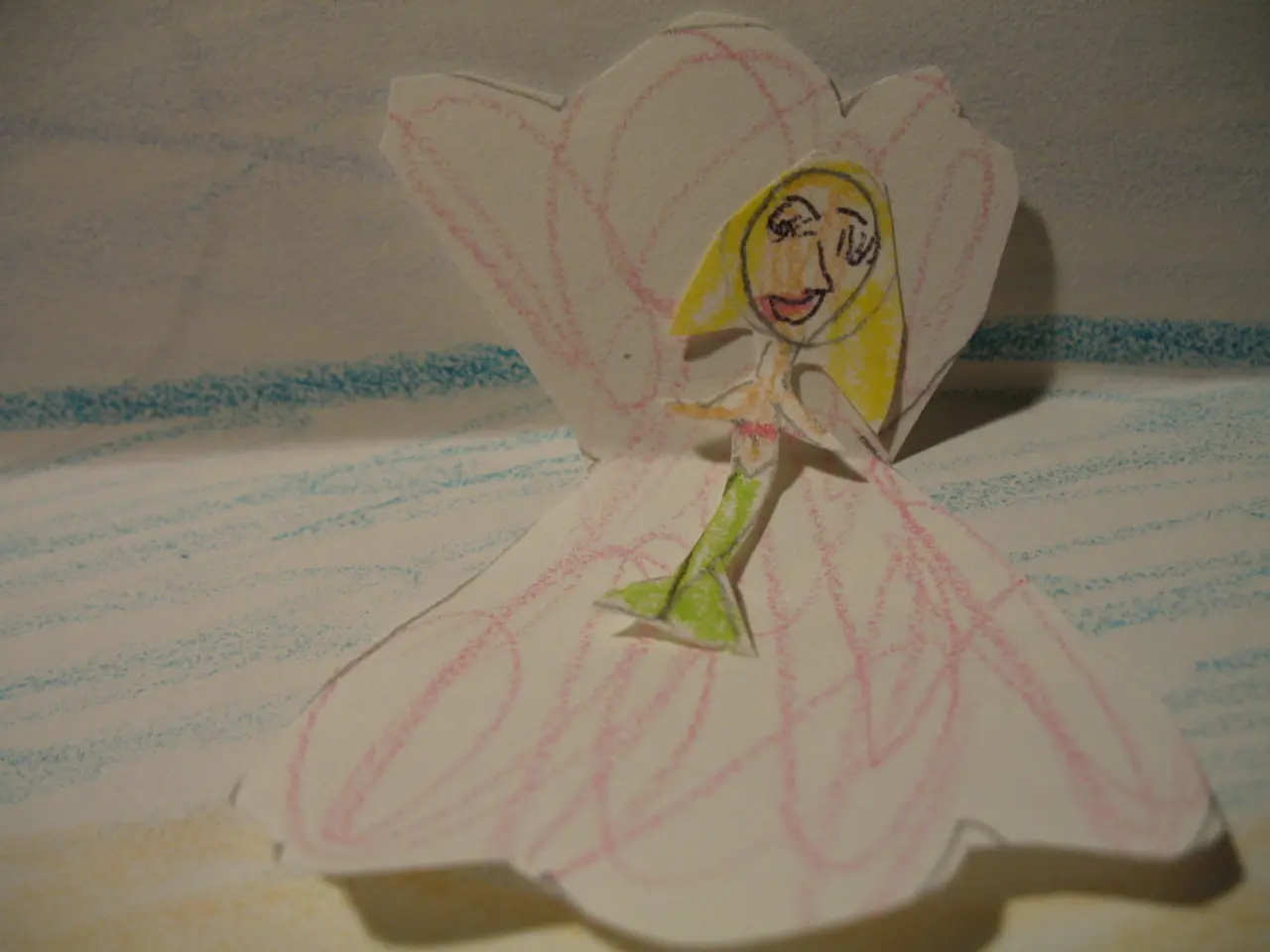"Portraits become increasingly challenging": A series of self-depicting paintings by an artist vividly display life and artistic expression through the decades with cerebral palsy.
**Lucy Jones' Artistic Evolution: A Journey of Self-Acceptance and Disability Representation**
Over the past three decades, British artist Lucy Jones has been creating a powerful narrative through her self-portraits, offering an unapologetic and intimate exploration of living with cerebral palsy. Her latest exhibition at Flowers Gallery in London showcases this evolution, celebrating her unique voice in contemporary painting and her courageous challenge to societal taboos.
Jones' artistic journey began in 1996, with the earliest work in her current show. However, her self-portraiture was initially a struggle due to the intense scrutiny of her own image and the emotional difficulty of confronting her body, especially during periods of depression. She avoided looking at herself in the mirror and focused on half-length images instead.
A turning point came in 1997 with the painting *Going Swimming*, which showcases Jones in a swimsuit on a vibrant yellow beach. This work marked a progression in her acceptance and exploration of her physicality, demonstrating her skill as a colorist.
By 2005, Jones created her first nude self-portrait, inspired by a photograph taken by her husband showing her from the back. This work, along with subsequent nudes, represented a deeper acceptance of herself and conveyed a dialogue about her relationship with her body and its public perception.
Titles for her works became increasingly important as Jones grew braver about openly discussing disability. Titles like *Who Is the Artist Round Here?* and *Remove Your Gaze* suggest a provocative engagement with the viewer and a challenge to preconceived ideas about disability and identity.
Jones' work is described as "totally, completely and absolutely Lucy Jones," emphasizing its raw and revealing nature. Her self-portraits, spanning over thirty years, confront disability head-on while engaging with broader themes of human form and identity.
In her newest piece, created this year, Jones is depicted on all fours looking up at the viewer, and a clipping from a leaflet attributed to The Centre for Spastic Children in Cheyne Walk is included, showing a photograph of Jones learning to crawl for the first time at three years old. This work, marking the artist at 70, is the third in her age-based trilogy.
Notable recurring themes in Jones' art include her walking frame, cane, backwards words, sentences, stiff, distorted hands, and surrealist elements such as a third hand reaching into the painting. Jones now paints on her knees due to discomfort from being on her feet, and she has downsized her canvases to ensure she can still reach the top.
Jones' work invites viewers to reconsider notions of beauty, identity, and the disabled body in art. Her self-portraits challenge societal taboos and offer a unique perspective on disability representation over the years. This evolution from reluctant self-examination to bold, full-length nude self-portraits with deliberate titles marks a significant development in both her art and disability representation.
The phrase "With a Handicap like Yours..." in Jones' artwork translates to 'What do you expect?' in her mind. This sentiment is reflected in her 2018 piece of the same name, which features an image of a wooden cane and a floating constellation of deviled eggs. This work was inspired by a conversation with a doctor who was reluctant to give her physiotherapy for her hand.
Lucy Jones' art exhibition at Flowers Gallery in London runs from July-August 2025. The show, which includes works dating back to 1996, celebrates the uniqueness of Jones' voice in contemporary painting and her continued exploration of her body and identity.
In her artistic evolution, Lucy Jones' use of titles like "Who Is the Artist Round Here?" and "Remove Your Gaze" signify a personal growth toward openness and self-advocacy in both her education-and-self-development and arts, encouraging discussions about identity and disability representation. The style of her self-portraits, marked by recurring themes such as her walking frame, cane, and surrealist elements, also serves as a testament to her determination to challenge societal taboos and showcase the beauty in disability arts.
With a recent work portraying Lucy Jones on all fours, this piece is a reflection of her style in the arts, merging the personal memoir of her early life with her more contemporary self-exploration, enhancing the visibility of disability representation in education-and-self-development and personal-growth conversations.




